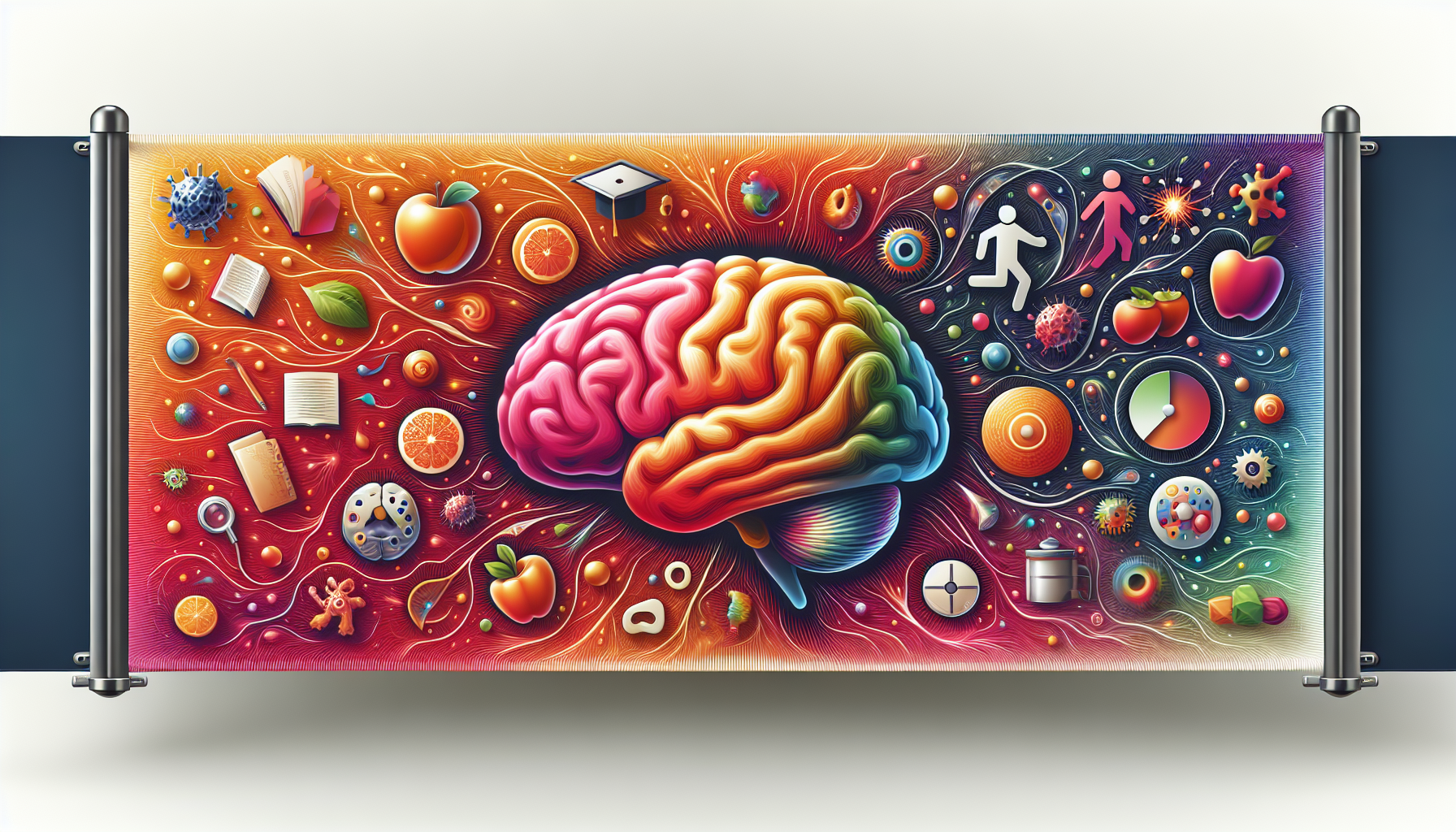On this page
Robert Waldinger's TED talk discusses the Harvard Study of Adult Development, tracking the lives of 724 men over 75 years, offers insight into what truly contributes to a good life. Surviving through the persistence of several generations of researchers, the study started in 1938, tracking two groups of men from different socioeconomic backgrounds. The research involved questionnaires, interviews, medical exams, and even discussions with the participants' children. The key findings reveal that good relationships, rather than wealth or fame, keep us happier and healthier. Good, close relationships, both in quantity and quality, are beneficial for physical health, mental health, and longevity. Loneliness, on the other hand, can be detrimental. The study concludes that maintaining good relationships, despite the effort it requires, is crucial for a good life.

How does it apply to you?
These insights can be applied in personal life to prioritize and nurture relationships. They can also be used in educational settings to teach the importance of social connections and in mental health practices to address issues related to loneliness and relationship quality.
Applied Learning to Developer Enablement
The key takeaway from this study is the importance of relationships and the negative impact of loneliness on health and well-being. This can be applied to software development in several ways:
- Team Collaboration: Encouraging strong relationships within development teams can lead to increased satisfaction and productivity. Teams that communicate effectively and support each other are likely to be more successful and happier in their work.
- Mentorship and Learning: Establishing mentorship programs where more experienced developers support less experienced ones can foster strong relationships and promote learning. This can also help in reducing feelings of isolation, especially for new developers.
- Work-Life Balance: Promoting a healthy work-life balance can help developers maintain strong relationships outside of work, which can positively impact their overall well-being and productivity.
- Community Involvement: Encouraging developers to participate in the broader software development community can help reduce feelings of isolation and promote learning and growth. This can be through contributing to open source projects, attending conferences, or participating in online communities.
- Psychological Safety: Creating an environment where developers feel safe to express their ideas and concerns can foster strong relationships and promote innovation. This includes encouraging respectful disagreement and recognizing the contributions of all team members.
Developer Checklist Refined
Relationship Building
Team Building
Summary
Introduction and Purpose of the Study
The speaker begins by questioning what keeps us healthy and happy as we progress through life. He mentions a survey of millennials where a majority prioritized wealth and fame as their life goals. However, he states that such notions are often misguided. To provide a more comprehensive picture, the speaker introduces the Harvard Study of Adult Development, which has been tracking the lives of 724 men for 75 years, providing a unique perspective on what truly contributes to a good life.
Challenges and Longevity of the Study
The speaker explains that the longevity of the study is rare, as most similar projects fail within a decade due to lack of funding, dropouts, or distractions. However, the Harvard Study of Adult Development has survived through the persistence of several generations of researchers. Of the original 724 participants, about 60 are still alive and participating in the study, and the research has expanded to include their children.
Demographics and Scope of the Participants
The study started in 1938 and tracked two groups of men. The first group comprised sophomores from Harvard College who finished college during World War II. The second group consisted of boys from Boston's poorest neighborhoods, chosen because they were from some of the most troubled and disadvantaged families. These participants entered all walks of life, and their life outcomes varied greatly.
Research Methodology
Every two years, the research staff reaches out to the participants to gather more information about their lives. This involves not only questionnaires but also interviews, medical exams, blood tests, brain scans, and discussions with their children. The research also includes videotaped conversations with their spouses about their deepest concerns.
Key Findings from the Study
The speaker reveals that the key findings from the study are not about wealth, fame, or hard work. Instead, the clearest message from the 75-year study is that good relationships keep us happier and healthier. Social connections are beneficial, while loneliness can be detrimental. People who are more socially connected to family, friends, and community are happier, physically healthier, and live longer than those who are less well connected.
Loneliness and Health
Loneliness has been observed to have a negative impact on a person's health, with those experiencing loneliness reportedly having a decline in brain function sooner and living shorter lives than those who are not lonely. It is noted that more than one in five Americans report feeling lonely at any given time, indicating the prevalence of this issue. It is also highlighted that loneliness can be experienced even when surrounded by people or in a relationship, suggesting that the number of people around someone or their relationship status does not necessarily equate to their loneliness levels.
Quality of Relationships
The quality of relationships, rather than the quantity or the presence of a committed relationship, has been found to significantly impact a person's health. Living amidst conflict, such as in high-conflict marriages with little affection, can be detrimental to health, possibly even worse than divorce. In contrast, good, warm relationships are protective and beneficial for health. This is evident in observations of individuals in their 80s, where those who were most satisfied with their relationships at age 50 were found to be the healthiest.
Relationship Satisfaction and Aging
The level of satisfaction in relationships has been found to be a better predictor of how well someone would age compared to other health indicators, such as cholesterol levels. Good, close relationships serve as a buffer against the effects of aging. Individuals in happy relationships were observed to maintain a happy mood even on days of increased physical pain, while those in unhappy relationships experienced amplified emotional pain alongside physical pain.
Relationships and Brain Health
Good relationships not only protect the body, but also the brain. Being in a securely attached relationship in later life is protective for the brain, with these individuals experiencing sharper memory for longer. Even relationships with frequent arguments do not detrimentally impact memory as long as the individuals feel they can count on each other during difficult times.
The Importance of Relationships
Despite the known benefits of good, close relationships for health and well-being, this wisdom is often overlooked in favor of quick fixes. Maintaining relationships requires effort and is a lifelong process. However, individuals who actively work to nurture their relationships, replacing workmates with new playmates in retirement, are found to be the happiest. The importance of leaning into relationships—family, friends, community—is emphasized, with the suggestion of simple actions such as replacing screen time with people time, rejuvenating stale relationships with new activities, or reaching out to estranged family members.
FAQs
What is the main focus of the Harvard Study of Adult Development? The Harvard Study of Adult Development focuses on tracking the lives of 724 men for 75 years to understand what truly contributes to a good life.
What are the demographics of the participants in the Harvard Study of Adult Development? The study started with two groups of men in 1938. The first group were sophomores from Harvard College who finished college during World War II. The second group consisted of boys from Boston's poorest neighborhoods, chosen because they were from some of the most troubled and disadvantaged families.
What is the research methodology of the Harvard Study of Adult Development? Every two years, the research staff reaches out to the participants to gather more information about their lives. This involves questionnaires, interviews, medical exams, blood tests, brain scans, and discussions with their children. The research also includes videotaped conversations with their spouses about their deepest concerns.
What are the key findings from the Harvard Study of Adult Development? The key findings from the study are that good relationships keep us happier and healthier. Social connections are beneficial, while loneliness can be detrimental. People who are more socially connected to family, friends, and community are happier, physically healthier, and live longer than those who are less well connected.
What impact does loneliness have on health? Loneliness has a negative impact on a person's health. Those experiencing loneliness reportedly have a decline in brain function sooner and live shorter lives than those who are not lonely. More than one in five Americans report feeling lonely at any given time.
How does the quality of relationships impact a person's health? The quality of relationships, rather than the quantity or the presence of a committed relationship, significantly impacts a person's health. High-conflict marriages with little affection can be detrimental to health, possibly even worse than divorce. In contrast, good, warm relationships are protective and beneficial for health.
What is the relationship between relationship satisfaction and aging? The level of satisfaction in relationships is a better predictor of how well someone would age compared to other health indicators, such as cholesterol levels. Good, close relationships serve as a buffer against the effects of aging.
How do relationships impact brain health? Good relationships not only protect the body, but also the brain. Being in a securely attached relationship in later life is protective for the brain, with these individuals experiencing sharper memory for longer.
Why are relationships important? Despite the known benefits of good, close relationships for health and well-being, this wisdom is often overlooked in favor of quick fixes. Maintaining relationships requires effort and is a lifelong process. However, individuals who actively work to nurture their relationships, replacing workmates with new playmates in retirement, are found to be the happiest.
What is the importance of leaning into relationships? Leaning into relationships emphasizes the value of family, friends, and community. This could involve simple actions like replacing screen time with people time, rejuvenating stale relationships with new activities, or reaching out to estranged family members.
What are some suggested actions to improve relationships? Some suggested actions include replacing screen time with people time, rejuvenating stale relationships with new activities, or reaching out to estranged family members.
How can you rejuvenate stale relationships? You can rejuvenate stale relationships with new activities.
What can be done to reconnect with estranged family members? Reaching out to estranged family members is one way to reconnect with them.







